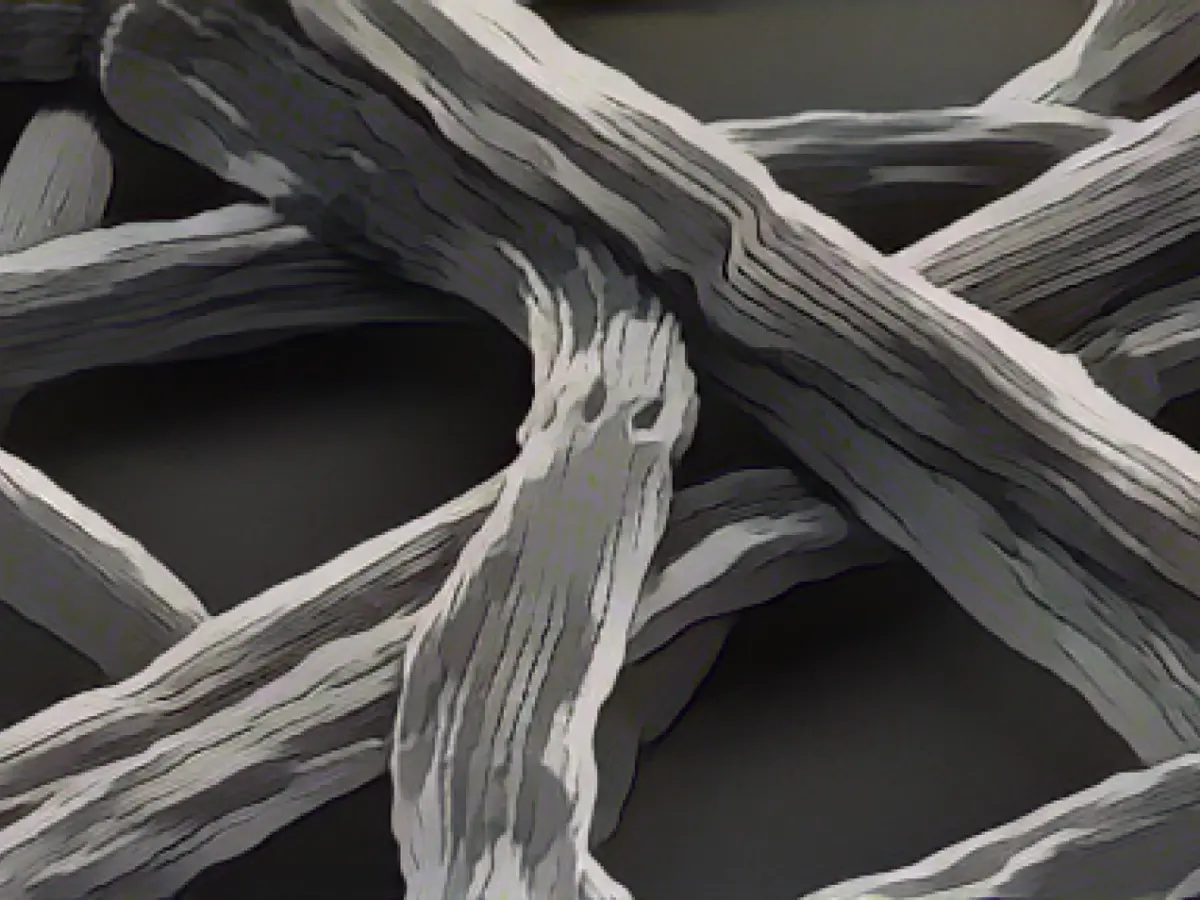Research - Electrically conductive bacterium is "Microbe of the Year 2024"
The current-conducting cable bacterium Electronema is "Microbe of the Year 2024". Tens of thousands of the tiny microorganisms can form chains up to five centimetres long, also known as cables. "These are connected by current-conducting protein fibers in their cell envelope," announced the Association for General and Applied Microbiology (VAAM) in Frankfurt.
The chain form of the bacteria of the genus Electronema enables a special division of labor. Thousands of cells of each individual cable live in the lower part of the sediment of bodies of water, where they convert sulphide to sulphate. This produces negatively charged electrons, which flow via the current-conducting fibers to the other end of the cable at the sediment surface, where they are transferred to oxygen.
Only discovered twelve years ago
As a result, cable bacteria are the only organisms able to consume the sulphide in a zone where there is no oxygen. According to the VAAM, this is "a major advantage over competing microorganisms". Cable bacteria were only discovered twelve years ago at the bottom of seas and lakes.
Although cable bacteria can be detected in nature, they cannot yet be isolated and propagated in the laboratory. Among other things, they can also promote the degradation of pollutants in bodies of water and reduce the formation of greenhouse gases. "In flooded rice fields, for example, a large amount of climate-damaging methane is produced every year. Cable bacteria live in the root area of rice plants and can reduce methane formation there."
The current conduction in the protein fibers of the cable bacteria is similar to that of a metallic cable, writes the VAAM. This makes them extremely interesting for electronics based on biomaterials. Although the conductive structures of the cable bacteria have already been patented, the development is still a long way from commercial implementation.
Read also:
- This will change in December
- Attacks on ships in the Red Sea: shipping companies avoid important trade route
- Houthi rebels want to launch further attacks despite international coalition
- USA forms military coalition against Houthi attacks on ships in the Red Sea
The Electronema, the microbe recognized as "Microbe of the Year 2024" in Frankfurt, Germany, is primarily found in the sediment of bodies of water. Despite being discovered only twelve years ago, these bacteria are unique in their ability to consume sulphide in oxygen-free zones. Owing to their specialized division of labor, they can reduce methane formation in flooded rice fields, potentially mitigating climate damage. Remarkably, the current conduction in the protein fibers of cable bacteria resembles that of a metallic cable, making them intriguing for future developments in electronics based on biomaterials. The patenting of their conductive structures marks a significant stride, although commercial application remains a distant goal.
Source: www.stern.de







